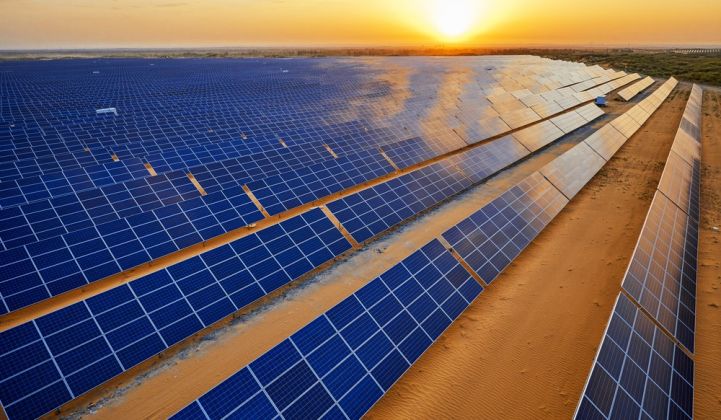No sun outlasts its sunset, but it will rise again and bring the dawn
– Maya Angelou
Frontline Community-Led Solar Policy Solutions
The Just Solutions Collective and the People’s Solar Energy Fund presents, “The Rising Dawn: How equitable solar policy can forward economic and climate justice”, a three-part blog series of policy models and insights from environmental justice leaders on frontline community-led solar policy.
The purpose of The Rising Dawn blog series is to address how solar policy could be designed to deliver maximum benefits to communities, specifically from the perspective of frontline communities: those with lower incomes who are disproportionately impacted by climate change and who are less likely to benefit from state and federal solar policies. This blog series addresses this through the direct input of frontline policy experts groups leading just and equitable solar solutions. We bring together examples of community-led solar initiatives focused on policy reforms, in different states and regions across the U.S. and sovereign Tribal Nations and examine the range of common and differentiated experiences.
This blog series spotlights examples of state and local policy work in solar as well as national networks representing frontline communities. This cross-section of stories has universal aspects that can be applied across the U.S. and in Tribal Nations. Through reviewing experiences on the ground and speaking with community groups leading and innovating on climate and clean energy policies, this series aims to understand what successful solar policy looks like from their perspective; that forwards climate, economic and racial justice. The remaining parts to The Rising Dawn blog three-part series are located on our blog page: Part Two and Part Three.
Benefits of Frontline Community-Led Solar Policy
Equitable, community-led solar policy brings a multitude of community benefits that go far beyond a discount on your electric bill. Frontline communities want solar policies that build racial and social justice and produce economic, environmental, health, social, and political benefits, ones that create good green jobs, healthy neighborhoods, and wealth in their communities. frontline communities understand that controlling their source of energy is an important part of racial and economic justice.
“When the community doesn’t own the solar project, the bulk of the economic benefits go to private developers, not the communities using the energy. Equity is not just access but who owns and who benefits from it.” – Timothy DenHerder Thomas, Cooperative Energy Futures
Economic Benefits
For frontline communities, community-led solar policy means communities can direct the development of income-producing assets, which can provide the following economic benefits:
- Renters and homeowners can save money with solar, therefore reducing their energy burden.
- Communities can direct and determine the local economy.
- Housing stock and property values increase in communities by bundling energy efficiency and roofing repair with residential solar installations.
- More money to fund community priorities (reallocating funds from paying utility bills to meeting a community need).
Environmental and Health Benefits
Replacing coal, oil, and gas-fired electricity plants with renewables means the reduction of fossil fuel emissions, which provide the following environmental and health benefits:
- A reduction of one of the human causes of climate change.
- Less air and water pollution in your community.
- In addition, community-led solar policy means Frontline communities are cleaner and healthier, with lower public health impacts.
Political and Social Benefits
For frontline communities, the community-led solar policy provides the following political and social benefits:
- Communities decide who receives the policy benefits and ensure everyone in the community is included in a way that works for social justice.
- Property taxes on solar projects are paid and solar savings on municipal buildings strengthen the municipality.
- Greater development and preservation of affordable housing in communities with solar savings, energy efficiency, and housing repair programs.
- Marginalized land and brownfields can be repurposed, use rooftops and dual-purpose parking lots, and farmland for solar.
- Experts in the energy industry can help advocate for community energy solutions that work for people in the community.
- Increase community control over energy choices.
Policy Barriers to Frontline Community-Led Solar Policy
Specific barriers experienced by frontline communities in accessing solar energy were identified by our policy experts and are explored below:
- There is a lack of frontline community influence over solar policy and implementation.
- Solar policies and processes are not as accessible as they should be to frontline communities.
- The solar industry is set up to serve different priorities and interests that are sometimes even opposed to Frontline community advancement.
There is a big gap between where we are now and where we need to go to address racial injustice, extractive capitalism, and climate change. All need to be replaced with systems that serve the common good, instead of the interests of a very few. Equitable solar policy addresses climate change, extractive capitalism, and racial and class injustice together.
Part two of our blog series will showcase examples of frontline community-led policy advocacy from around the U.S. and part three will highlight the reasons for scaling up frontline community-led solar policy and include components of successful solar policy. The remaining parts to The Rising Dawn blog three-part series are located on our blog page: Part Two and Part Three.
